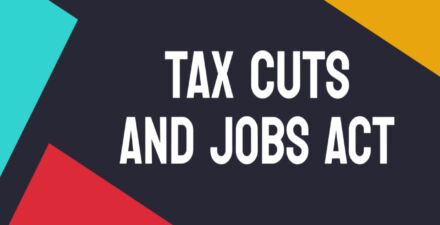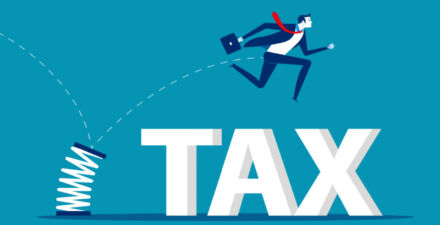End Ineffective Business Tax Breaks Before Creating New Ones
(This opinion piece first appeared in Tax Notes Federal on September 23, 2024.)
Vice President Kamala Harris recently proposed an expanded tax benefit for start-up businesses, aimed at helping fledgling entrepreneurs lower their tax bill.
That’s all well and good: With hard work, capital investment, and some luck, small, early-stage firms can become engines of economic growth and hiring. There is not great evidence that tax policy makes much of a difference in this regard. Business decisions are mostly based on immediate, real-world conditions, not on tax benefits that will take years to pay out, if at all. But narrow, targeted proposals, such as the vice president’s, can make a positive difference—and can do so without blowing a hole in the federal budget.
Yet Harris is not the first politician to try to use the tax code to appeal to Americans’ love of “small business.” The tax code is riddled with expensive and regressive provisions that are purportedly directed at small firms but today operate as large, unfair loopholes.
Take, for example, the qualified business income deduction, also known as section 199A. This highly complicated provision was included in the Tax Cuts and Jobs Act as a last-minute giveaway to passthrough businesses, non-C-corporation firms that pay taxes on their owners’ individual returns rather than as a separate entity. In the political debate, passthroughs are often invoked interchangeably with “small businesses,” but the truth is the big winners from this tax cut were extremely wealthy owners of relatively large firms. One such beneficiary was billionaire former New York City Mayor Michael Bloomberg—not exactly a local Main Street proprietor—who received nearly $68 million in 2018 thanks to section 199A.
The problems with section 199A are foundational. Not only are the guardrails that policymakers put in place to limit the benefit to low- and middle-income owners clearly not working, but the section by design also only helps already profitable companies, not nascent start-ups. The provision is incredibly expensive, costing roughly $60 billion per year—more than enough to fund a universal pre-K program. The provision’s proponents claimed that it would increase entrepreneurship and economic activity, but a rigorous evaluation of it has found zero impact on wages, output, or employment.
Thankfully, section 199A—which one expert called “the worst provision ever even to be seriously proposed in the history of the federal income tax”—is scheduled to sunset at the end of 2025. Policymakers would be wise to let it expire.
But section 199A is not the only wasteful tax policy ostensibly focused on small business owners. Congress should also get rid of the qualified small business stock exclusion, or section 1202. Despite having “small business” in the name, this provision has similarly failed to actually help small businesses, instead providing a windfall to already wealthy C corporation founders and venture capitalists.
Again, the rules have proven gameable: Although businesses with more than $50 million of assets when stock is issued are ineligible, there is a gray area around how those assets are valued. And while the limit on the capital gains exclusion is set at $10 million (or 10 times the price paid for the stock, whichever is higher), tax planners have devised schemes to spread qualified gains across trusts and family members, allowing for investors to shield many multiples of that limit.
One final loophole that policymakers should close before adding more small business benefits to the code is perhaps the most maddening, since it undermines the fiscal stability of some of our most critical and beloved government programs: Medicare and Social Security. To ensure parity between wage earners, who pay payroll taxes, and business owners, who do not, the self-employed in the United States pay what is called the self-employment tax, contributing their fair share to the Social Security and Medicare trust funds. High-income business owners also pay what’s called the net investment income tax to help fund Medicare. Yet many self-employed Americans get around these obligations by setting up S corporations or finding other loopholes, such as qualifying as “real estate professionals” or “limited partners” in a partnership.
The tax code should reward bona fide entrepreneurs who strike out on their own to start a small business, and Congress should welcome new ideas to encourage productive risk-taking. But tax policies that profess to help small businesses should be designed carefully so as not to create loopholes that can be abused by wealthy Americans with high-priced lawyers and accountants. The tax code is already riddled with such provisions, failing to encourage productive investment and costing the federal government billions of dollars.
Harris and other policymakers should clean up this underbrush of tax waste—by allowing section 199A to expire, doing away with section 1202, and closing the self-employment and net investment income tax loopholes—before planting new tax incentives for business owners.
Did you find this content informative and engaging?
Get updates and stay in tune with U.S. economic inequality and growth!






